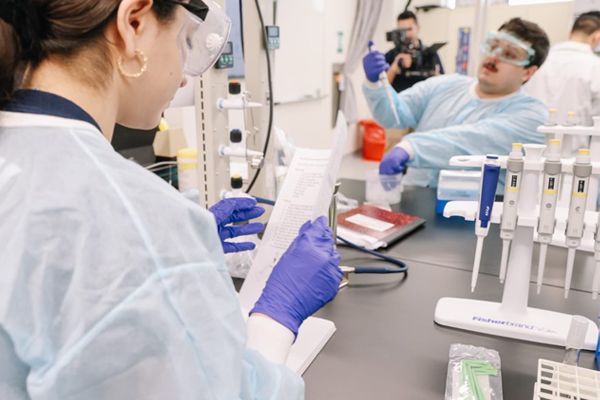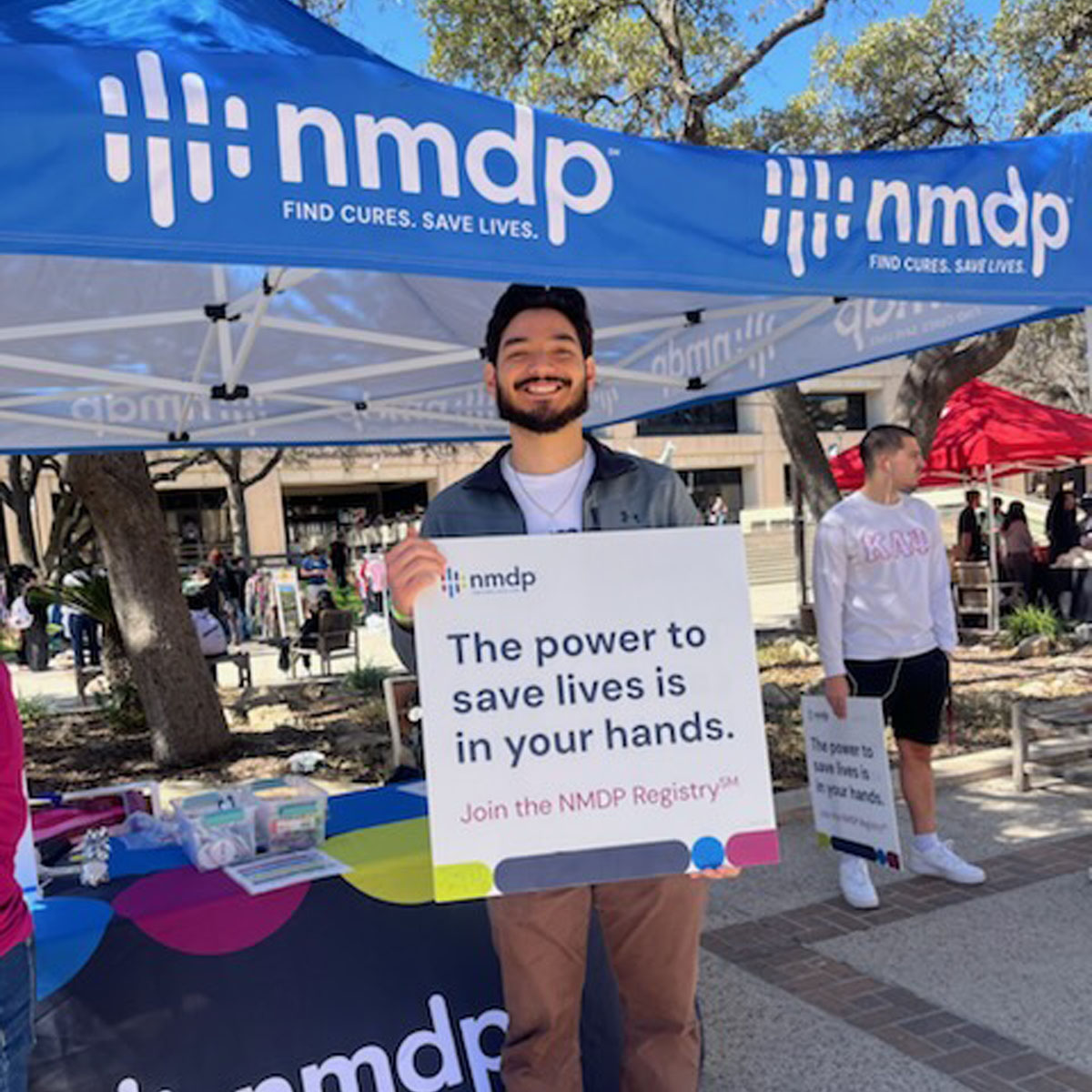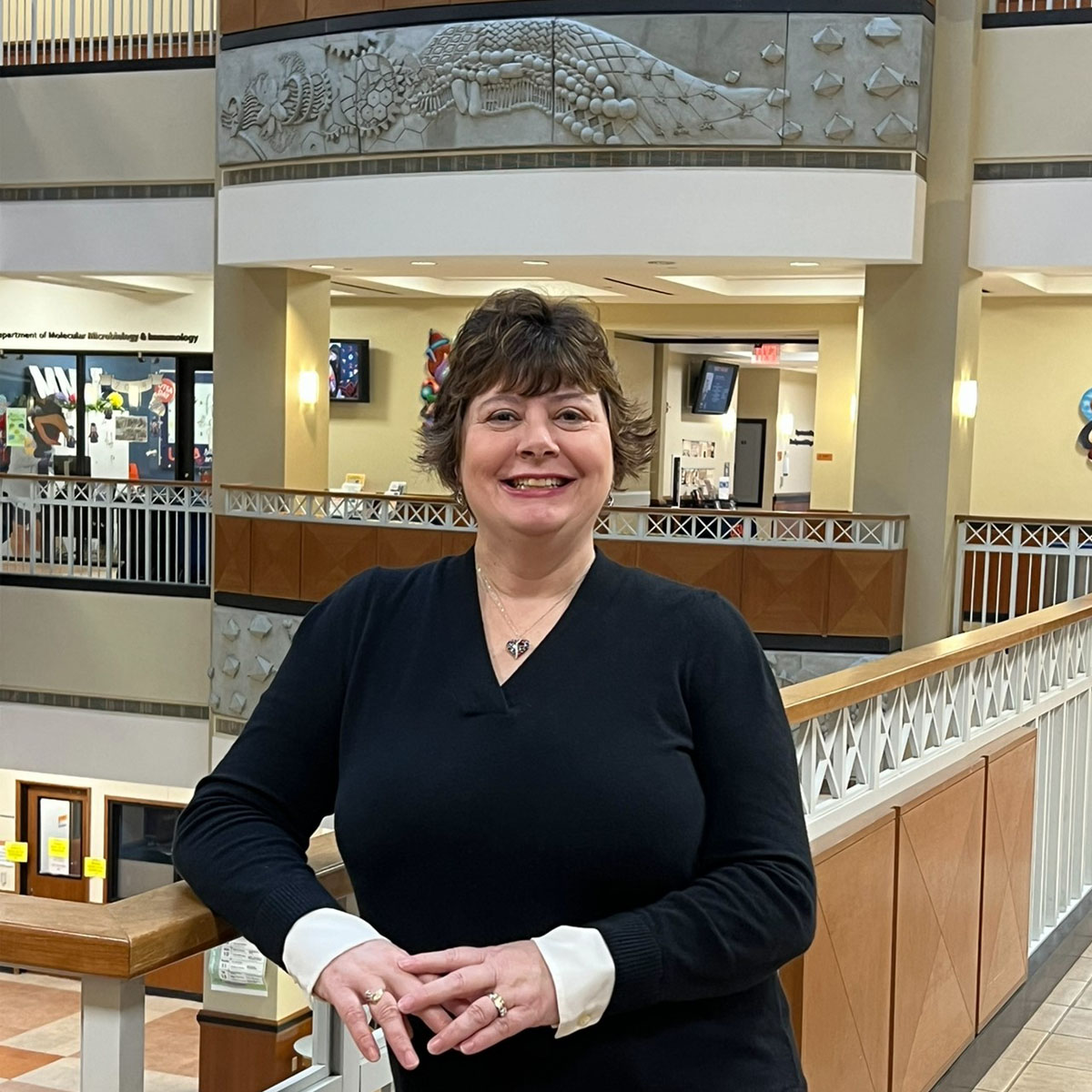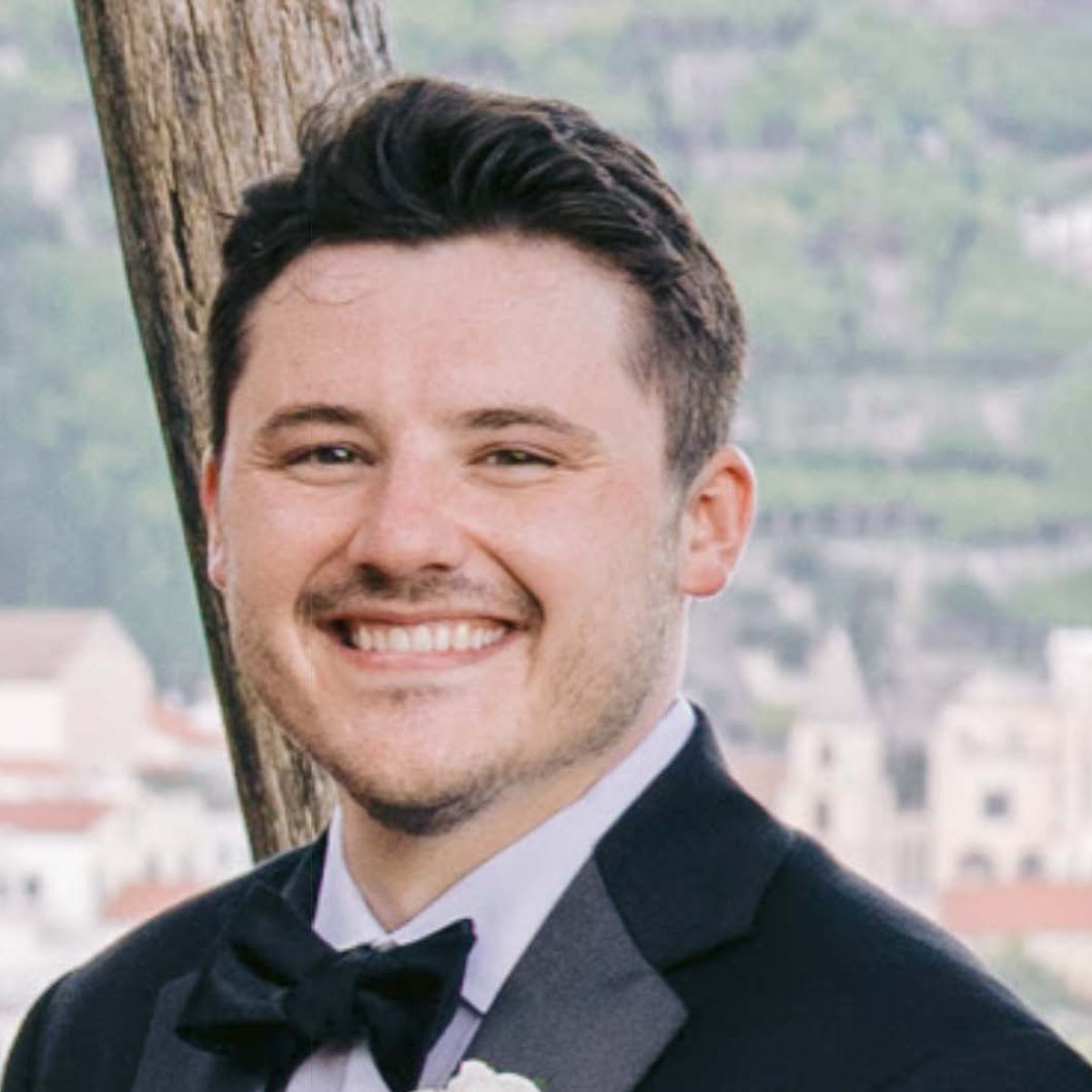Posted on October 7, 2019 by College of Sciences

Jessica O'Berry, Biology Major
The One Who Made Her Own Mold
By Lauren Moriarty
"Science is about failing and I think a lot of people don't necessarily understand that coming in," says senior Jessica O'Berry. "We just fail until something is finally right. I learned that right off the bat. I had been trying to purify a protein for a year and a half. Every time I tried to purify it, it didn't work. But it's never a failure when you continue to learn. It's only a failure when you stop."
As a kid, Jessica devoured "Osmosis Jones," an animated movie that involves a white blood cell cop, a cold capsule, and a deadly virus. In high school, the book The Hot Zone introduced her to the U.S. Army Medical Research Institute of Infectious Diseases (more on that later). Still, it wasn't until she transferred to UTSA as a junior that she decided to pursue a career in infectious disease research. "I had been told the only way you can study it is when you have a MD and work in a hospital. Then I came to UTSA and discovered the South Texas Center for Emerging Infectious Diseases," Jessica explains.
Jessica's journey started with biochemistry, jumped to ecology, and ended with biology once she transferred to UTSA. "I came in and started researching in my senior year," she says. "I just didn't fit what I thought was the mold. Now I'm coming to find out that I can make the mold, I don't have to fit into it."
Her untraditional path made her realize there is not one right way to become a scientist. "I stayed an extra semester," Jessica says. "That kind of bummed me out at first but if I hadn't stayed, I wouldn't have been able to do a wonderful summer program where I learned about myself and what I can do. I went to a national conference and won the poster presentation for my division. At the state conference, I won for my oral presentation. I wouldn't have been able to do any of those things if I had followed a traditional route."
As a woman of color in science, Jessica has experienced both micro- and macroaggressions—once, she was interrupted while presenting her poster at a conference by someone who "thought they knew more about my project than I did." "There are times when you're the only person in the room that looks like you and you can kind of tell that people treat you differently because of the way you look. And that's disconcerting," Jessica says, adding that she could not have made it this far without the support of her family and her UTSA community. "I've gotten helpful mentoring from both my Ph.D. student in lab and the MARC/RISE programs. They tell me, you're a minority in science but you're not alone in science."
Jessica isn't finished with her mold just yet. She is currently applying to doctoral programs and, after she graduates this fall, will begin earning her master's degree at UTSA. Her ultimate goal is to land a job at the U.S. Army's Medical Research Institute of Infectious Diseases, which she remembers "fangirling" over in high school. "They work with some radical pathogens up there. Their job is to build the biological defenses to protect America and its soldiers," Jessica says. "I just think that would be so cool because I've always felt a pull to join the military because both of my parents were in the army. I would love to help the nation with research."

Explore the MMI Department!
Uniting an engaged community of researchers, educators, and students while preparing students for professional careers in microbiology and immunology, medical and public health service fields, education, research, and industry.
Recent MMI Spotlights
View More Spotlights



